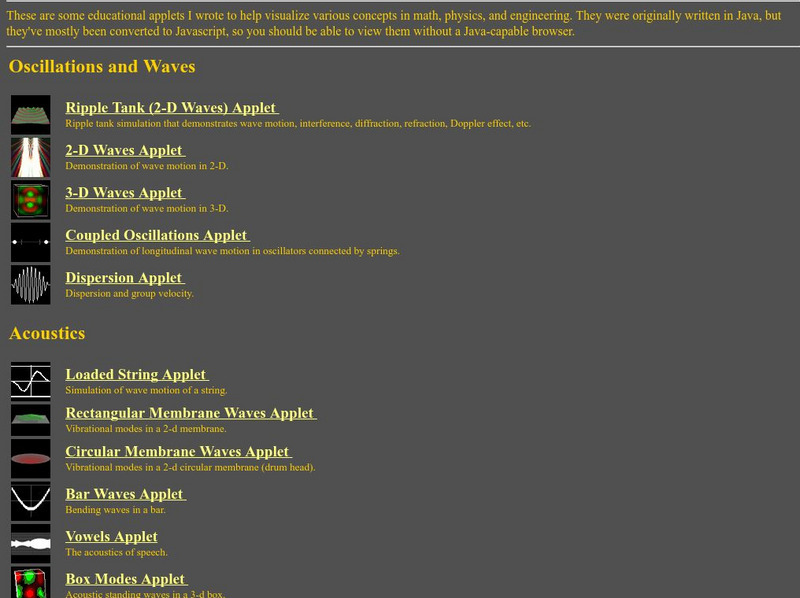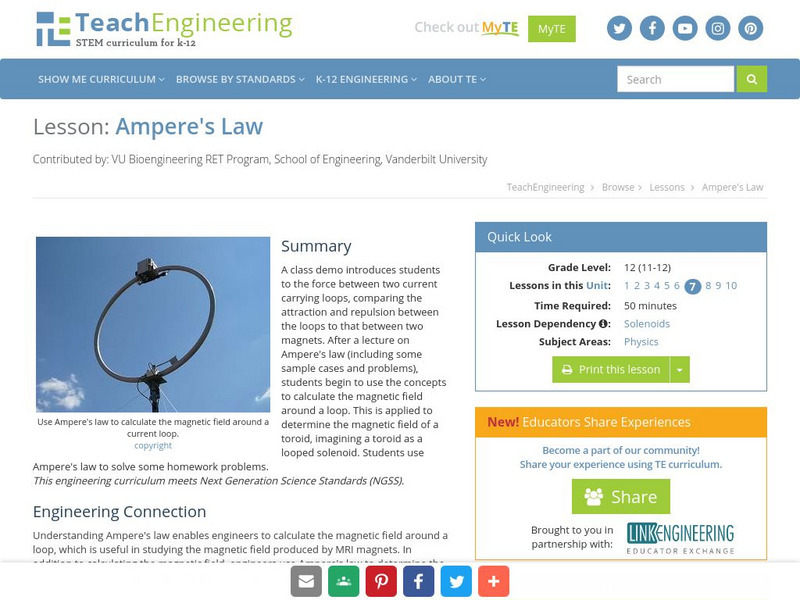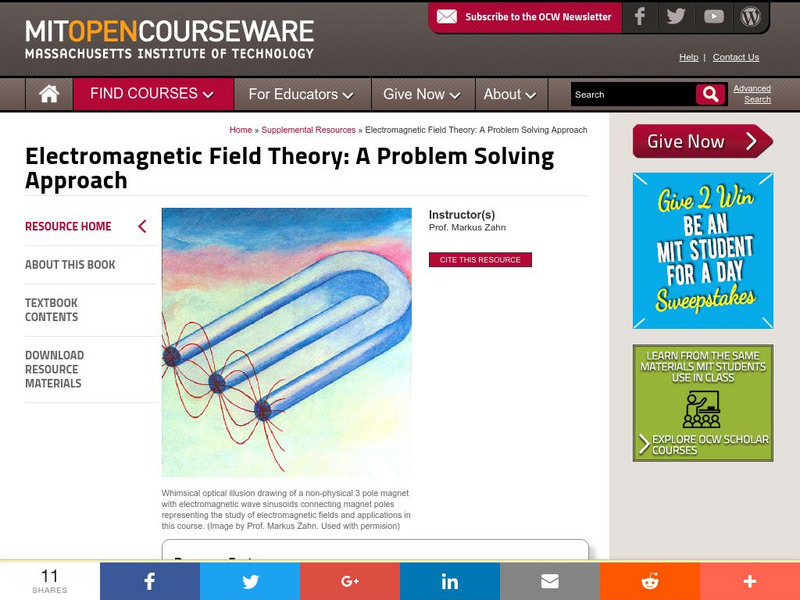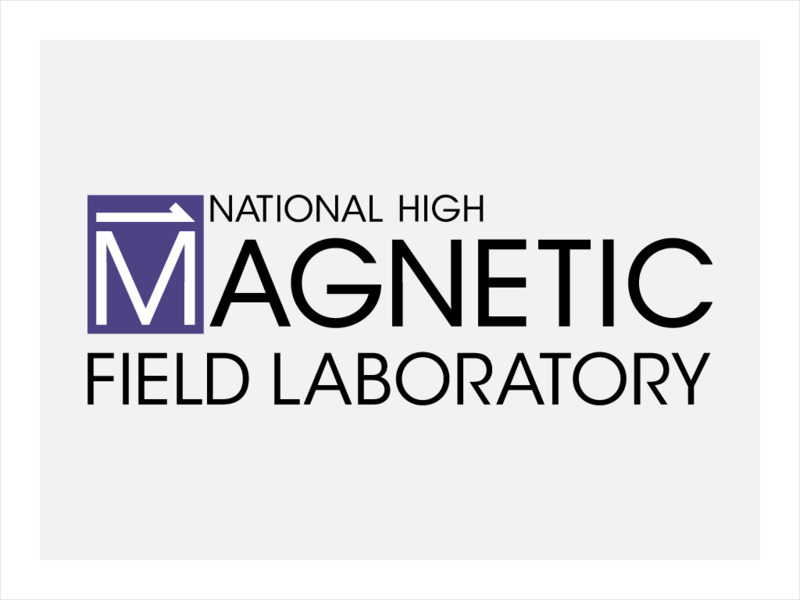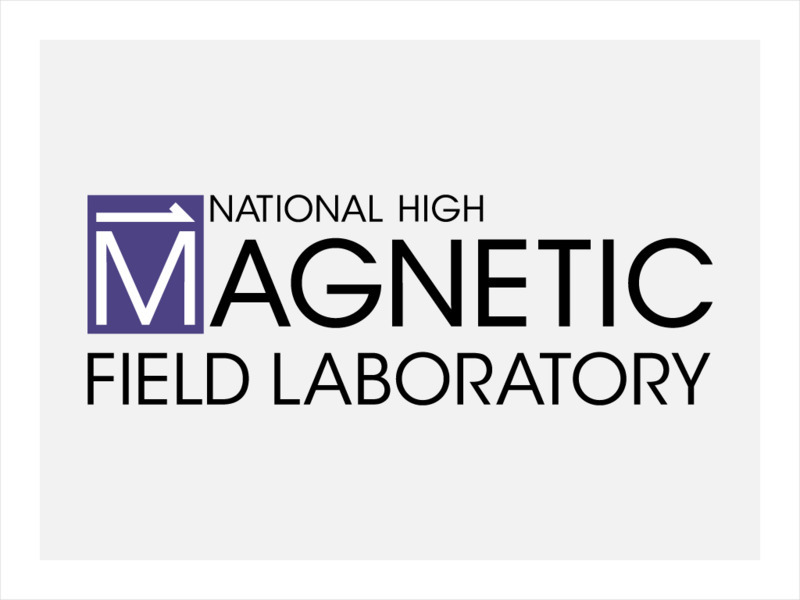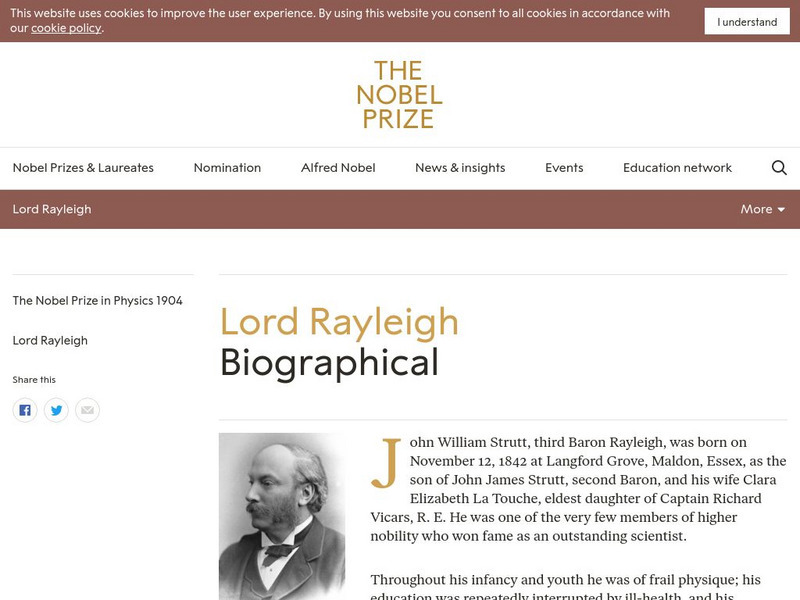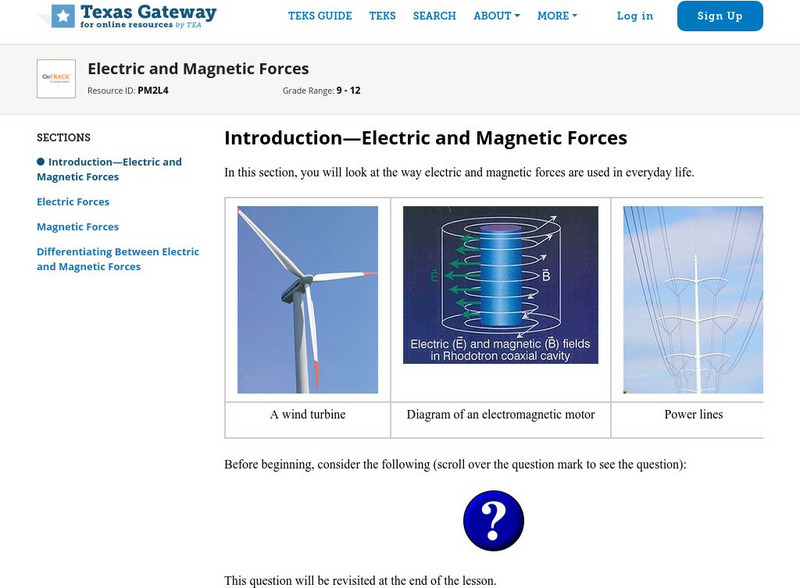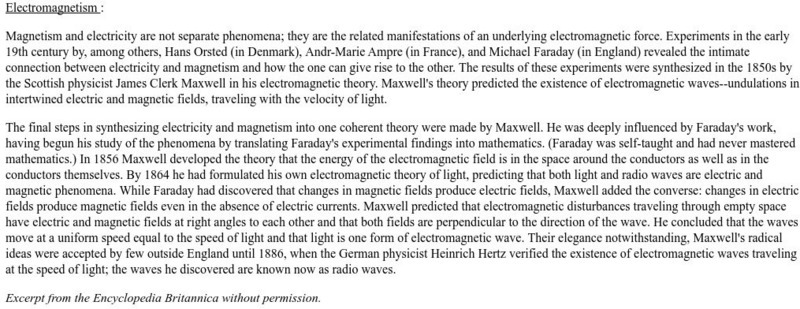Other
Math, Physics and Engineering Applets
Written by Paul Falstad, these educational Java applets address myriad concepts related to electrostatics, magnetostatics and electrodynamics. You'll find instructions on how to operate each applet, but little explanatory material.
TeachEngineering
Teach Engineering: The Good, the Bad and the Electromagnet
Using plastic straws, wire, batteries and iron nails, student teams build and test two versions of electromagnets-one with and one without an iron nail at its core. They test each magnet's ability pick up loose staples, which reveals the...
TeachEngineering
Teach Engineering: The Electric and Magnetic Personalities of Mr. Maxwell
Students are briefly introduced to Maxwell's equations and their significance to phenomena associated with electricity and magnetism. Basic concepts such as current, electricity and field lines are covered and reinforced. Through...
TeachEngineering
Teach Engineering: Ampere's Law
The activity begins with a demonstration introducing students to the force between two current carrying loops, comparing the attraction and repulsion between the loops to that between two magnets. After formal lecture on Ampere's law,...
University of St. Andrews (UK)
University of St. Andrews: Niels Henrik David Bohr
This resource presents a biography of Bohr, including many personal tidbits, as well as a substantial treatment of his scientific work. Several interesting quotes by and about Bohr are included. It also links to several other sources.
University of St. Andrews (UK)
University of St. Andrews: Andre Marie Ampere
Resource provides a biography of the scientist Andre Marie Ampere.
Massachusetts Institute of Technology
Mit: Open Course Ware: Courses: Physics: String Theory for Undergraduates
College-level physics course focusing on the string theory. The course develops the aspects of string theory and makes it accessible to students familiar with basic electromagnetism and statistical mechanics. Course features include...
Massachusetts Institute of Technology
Mit: Open Course Ware: Resources: Electromagnetic Field Theory
College-level electrical engineering textbook starting from the Coulomb-Lorentz force law on a point charge. Sample problems that reinforce the content are found at the end of each chapter. Includes downloadable excerpts of the textbook...
Exploratorium
Exploratorium: Curie Temperature
In this experiment, students experience the Curie point--and what happens when a piece of iron gets too hot to attract a magnet.
National High Magnetic Field Laboratory
Magnet Academy: Capacitor
A capacitor is similar to a battery in that both store electrical energy. But a capacitor can't actually produce new electrons; it only stores them.
National High Magnetic Field Laboratory
Magnet Academy: Andre Marie Ampere
Although he was not the first person to observe a connection between electricity and magnetism, Andre-Marie Ampere was the first scientist to attempt to theoretically explain and mathematically describe the phenomenon. His contributions...
National High Magnetic Field Laboratory
Magnet Academy: Timeline of Electricity and Magnetism: 1850 1869
The Industrial Revolution is in full force, Gramme invents his dynamo and James Clerk Maxwell formulates his series of equations on electrodynamics.
Nobel Media AB
The Nobel Prize: Lord Rayleigh Biographical
At this site from the Nobel e-Museum, you can read about the scientific work of Lord Rayleigh (1842-1919 CE). This article includes information on his education and experiments with light and sound waves.
Texas Education Agency
Texas Gateway: Electric and Magnetic Forces
Given diagrams, illustrations, or descriptions, students will identify examples of electric and magnetic forces.
Walter Fendt
Walter Fendt: Apps Zur Physik
This site, in German, offers numerous apps that illustrate common physics principles. Apps are organized into categories: mechanics, oscillations and waves, electrodynamics, optics, thermodynamics, the theory of relativity, physics of...
Famous Scientists
Famous Scientists: Andre Marie Ampere
Learn about Andre Marie Ampere, one of the founders of the science of classical electromagnetism, which he referred to as electrodynamics.
CK-12 Foundation
Ck 12: Physics Simulation: Galvanometer
[Free Registration/Login Required] Understand how the magnetic field generated by loops of current-carrying wire is used to create measuring devices like voltmeters and ammeters with this interactive simulation. A PDF worksheet and a...
Science and Mathematics Initiative for Learning Enhancement (SMILE)
Smile: Electromagnets (Grades 3 and 4)
This lesson plan helps students to understand the difference between magenets and electromagnets. They will also create an electromagnet.
Other
Hyper Jeff Network: History of Classic Electromagnetism
This site from the HyperJeff Network provides a timelined history of scientific thought and discoveries about classic electromagnetism. Includes links to the biographies of famous people and discoverers; the time period covered ranges...
University of Oregon
University of Oregon: Electromagnetism
A solid summary from the University of Oregon of the work of James Maxwell Clerk, Michael Faraday, and others in the field of electric and magnetic phenomena. This is a fine essay.
Sophia Learning
Sophia: Electromagnetism
This lesson will explain the relationship between electricity and magnetism.
Cornell University
Cornell University: Astronomy: Electromagnetism and Charge
This site from Cornell University provides a very short, very telling comparison of matter and charge. This is a good site to check out on the subject, with a chart diagram to help with further information.
